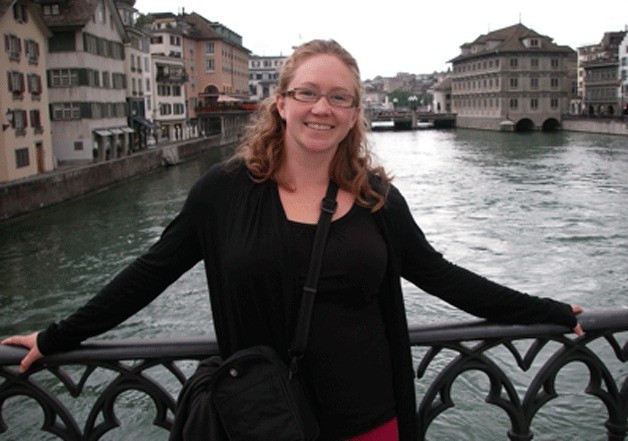Kit Ketcham is stepping up her campaign in the defense of science, so long as science is done right.
“There’s a mistrust,” said Ketcham, pastor of the Unitarian Universalist Congregation of Whidbey Island in Freeland. “Anti-science, anti-education, anti-intellectual attitudes just seem to be growing in the country.”
“There’s a fear of change,” she added. “If you ask people to consider new information when they’re accustomed to holding beliefs based on traditional information, that’s a scary prospect.”
In response, the third in a series of interactive discussions on the subject of science will be held tonight at her congregation’s meeting hall.
The program, “Ethics, Climate Change and Individual Responsibility,” featuring Lauren Hartzell, an instructor of environmental ethics at the University of Washington, will be from 7 to 8:30 p.m.
Ketcham said the idea for a series of discussions arose about a year ago, and she put together a task force to explore ways to counteract a perceived antipathy toward science in general.
The result was a pilot session on the subject of Charles Darwin’s Theory of Evolution earlier this year, which attracted about 50 people. That success led to another program in October, this one on conservation.
Tonight’s program marks the launch of Lyceum 2.0, a continuation of the Whidbey Institute’s previous Lyceum discussion series. Whidbey Institute and Transition Whidbey are partners with UUCWI in the new series, which will feature a different speaker each month, Ketcham said.
“We want to help bring science to people, to help them feel more like science advocates,” she said. “But with an ethical foundation — the ethical piece is very important to me.”
She said the format of tonight’s program will feature a short presentation by Hartzell, followed by a discussion involving local panelists and including questions from the audience.
“We want to have a dialogue, not just a talking head,” Ketcham said.
She said Hartzell will discuss issues such as the ethics of climate change, individual responsibility and how to make a difference.
The local panel will include Ketcham; Langley City Councilman Robert Gilman; small-fishery owner Paula Keohane of Coupeville; and Amy Vallat, a young mother.
Ketcham said she has several questions to toss into the mix. Among them are whether people should be forced by government to live with less, or technically whether they should be forced into any kind of action at all.
“Our overall hope for the series is to help people become more articulate about science and ethics,” Ketcham said. “Science needs to be neutral, and scientific research ethical. We need that approach to some of our human crises.”
“Can we force things down people’s throats? Where do we draw the line?” she added.
Ketcham said she declines to take an apocalyptic view of the Earth’s future, such as will it ever be necessary to sacrifice people’s lives to save the planet.
“I’m learning about this all the time,” she said. “I’m such a mind-changer.”
“But I’m optimistic humankind will adapt, and we’re not going to have to throw anybody overboard,” she added.
Ketcham said the overall theme of Lyceum 2.0 is “Energy Futures for Puget Sound.” Programs for upcoming months are tentative, she said, but topics probably will include sustainability, research, tidal power and the technical innovations that continually emerge.
“We’re still learning how to do this,” she said. “But these are all things that science must address.”
The UUCWI meeting hall is two miles north of Freeland at 20103 Highway 525. A donation of $5 is suggested, and coffee will be served.
For more information, call 331-2163.



